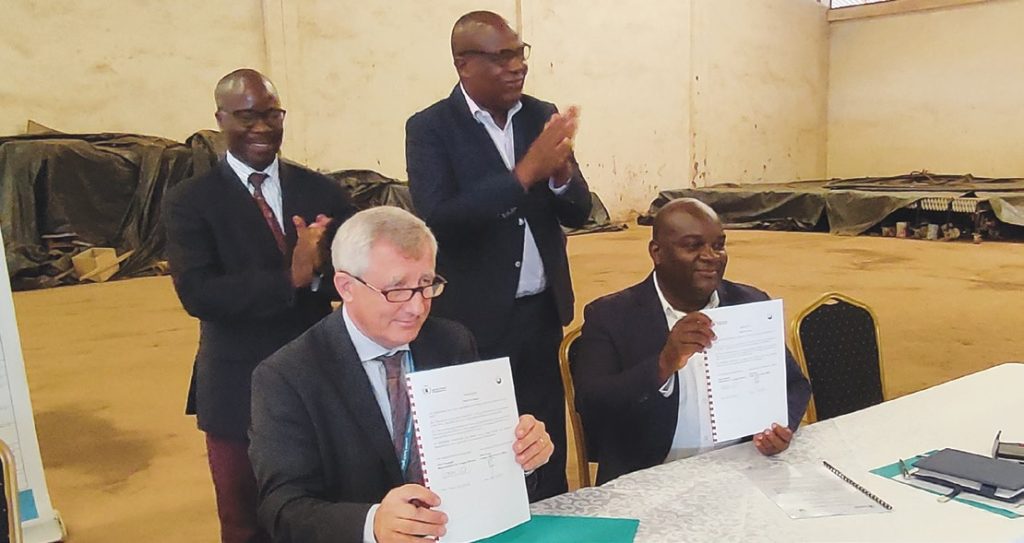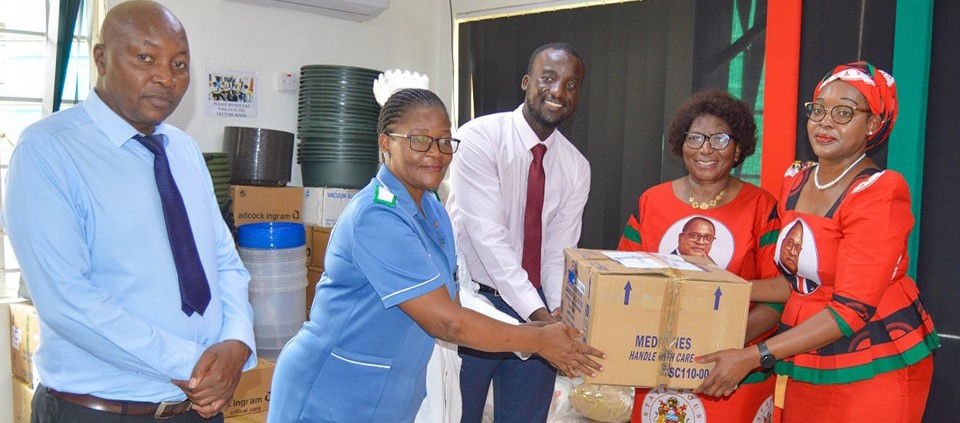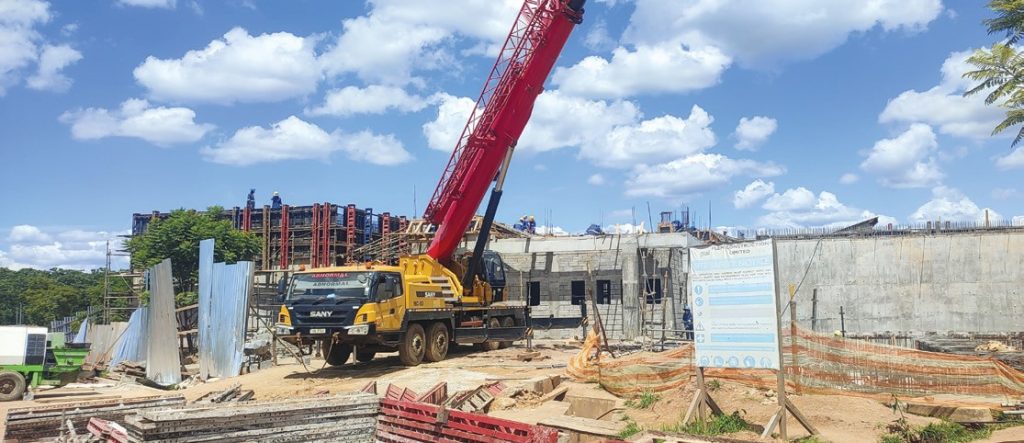The World Food Programme (WFP) says it is may stop its refugee assistance from June this year if it does not get additional resources.
A WFP country brief for January 2024 indicates that between now and June, the United Nations (UN) agency will have to further downsize its assistance to priortise only the most vulnerable of the population at the Dzaleka Refugee Camp in Dowa, but observes that if the situation does not improve, they may stop the support from June.
Turnbull (L) during the signing of support agreement
with government last year
In response to our questionnaire, WFP country director and representative Paul Turnbull said the estimated budget shortfall for the next six months is $3.5 million (about K6 billion) which is required to provide adequate assistance to 53 000 refugees between February and July 2024.
He said the deficit poses a significant challenge to sustaining the current level of support and meeting the needs of the vulnerable populations in question.
Said Turbull: “In the unfortunate event that additional resources are not secured, WFP may be forced to make difficult decisions, such as prioritising the most vulnerable households or, in extreme cases, completely halting food assistance from June 2024. This could exacerbate the food insecurity situation for most of the population at the camp.”
He also acknowledged the challenge of balancing support between refugees and the larger population facing acute hunger in Malawi while respecting their principles of ‘Leaving no one behind’ and ‘Zero-discrimination’.
In its November 2023 brief, WFP warned that it would halt the programme this month.
“November and December cash distributions will take place in December. WFP is currently at risk of halting its refugee assistance from January 2024 should no additional resources be received,” reads the November 2023 country brief.
This comes on top of a WFP survey in November last year which found that only 22 percent of the population at Dzaleka camp were food-secure, meaning 78 percent needed support.
WFP provides about about K9 200 per person every month for food and other needs even in the face of devaluation of the kwacha by 44 percent due to funding challenges.
Turnbull said government decision to send back refugees and asylum seekers to the camp has added the pressure on the meagre resources to support refugees, some of whom lived on their own means.
In a telephone interview yesterday, Minister of Homeland Security Ken Zikhale Ng’oma said there is nothing government can do to support the refugees should WFP stop providing support
He said Malawi is already strained to feed its own people who are facing acute hunger.
“I am urging them [WFP] to continue providing support as they promised.”
“I really don’t understand the concept behind this idea that we must keep refugees and asylum seekers whose countries no longer have issues,” he said.
The post WFP ponders to halt refugees aid appeared first on The Nation Online.
 Moni Malawi
Moni Malawi 

